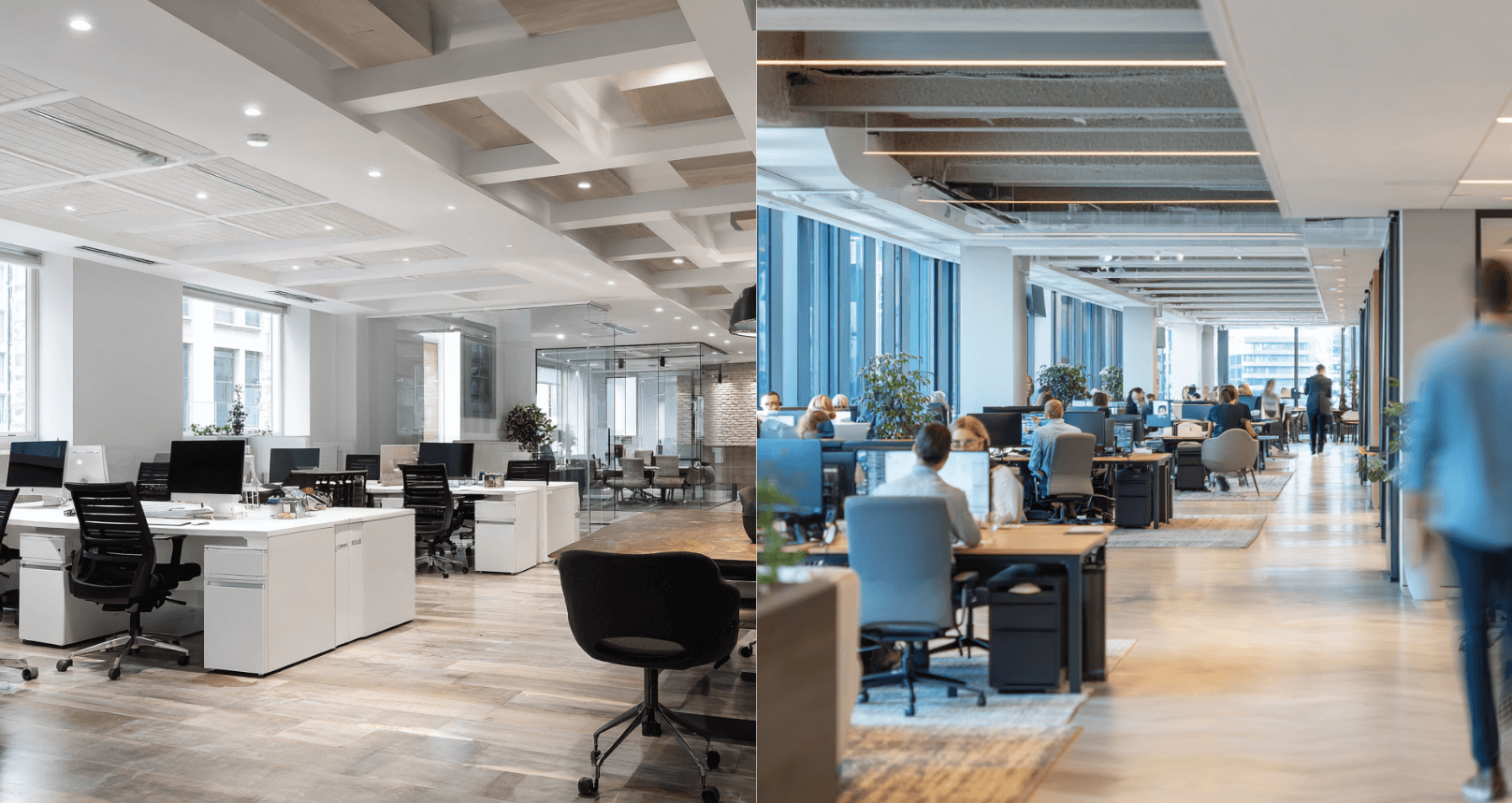The future of work with Twilio's Devorah Rosner
The pandemic proved that Twilio’s team could work from home. Devorah Rosner explains how that impacted business as usual.
.jpg)
During our Workplace Innovation webinar series, we spoke with Devorah Rosner of Twilio. As Senior Manager of Global Workplace Operations, Devorah describes her team as “the boots on the ground” that create a productive work environment for all 27 of Twilio’s offices worldwide.
Below are some highlights of our interview with Devorah. You can see the full conversation above to learn more about her take on designing office spaces that support the way people want to work.
Twilio’s return-to-work strategy
The pandemic proved that Twilio’s team could successfully work from home. This realization raised questions about what their operational model should look like post-pandemic.
“Like everyone, we've had to rethink everything, from A to Zed, about what our real estate footprint looks like, how we use space, how we used to use space, and how we will be using space.”
During the past year, Twilio developed a program called Open Work. It categorizes employees by job type and whether it requires being in the office. Less than 5% of their global staff need to be on-site daily, meaning there’s a lot of free desk space Devorah can get creative with.
The Workplace Operations team is intent on understanding how people will actually use this space. Through surveys, beta testing, and benchmarking with other companies, her team can make data-driven decisions.
Though they have research to back up their proposed changes, there’s still no blueprint for success here. One of Twilio’s company values, coined by CEO Jeff Lawson, is to “draw the owl". It emphasizes moving through uncertainty with agility.
“We’re always finding the balance between what we can plan for and what we have to be reactive to,” Devorah says.
Unassigned seating is the new normal
Right now, Twilio is 100% assigned seating, but that’s going to flip to a hoteling model where every desk is reserved.
Though fewer workers will be in the office daily thanks to the new Open Work program, Devorah isn’t planning to downsize the company’s office real estate. Her team will convert approximately 30% of the previously desk-occupied square footage into communal areas with reconfigurable furniture.
She understands that the collaboration that happens in a shared space is unique. It encourages a sense of community that allows people to comfortably share ideas and allows for those accidental interactions that can lead to surprising innovations.
“We're reallocating those spaces as hackable spaces, scrum spaces. We're calling them dynamic spaces, where furniture is reconfigurable. It's no longer one-size-fits-all. It allows more variety to meet people where they are, to work how they work.”
Managing the changes
Switching to a hybrid work model and reconfigurable workspaces isn’t just about using square footage well. You also have to consider how these changes affect the employee experience. After a year of relentless unpredictability, workers may need some coaxing to get past the initial shock of a workplace that looks and functions differently.
“We're going to beta this in a few of the larger offices to model it, to test it, to measure it, to see how our spaces are actually being used, not how we think they're going to be used.”
Devorah wants to give each office the autonomy to navigate these changes in their own way. “As far as the personalization, it's not for me to say. A lot of that, really, is going to come from our employees, utilizing wall space, setting up their own environments that speak to the needs that they have, because every team is different, every site is different.”
The future of work
Devorah sees the future of work emphasizing both collaboration and socialization. Rather than the office being solely about work, it will become a community that gives employees a sense of belonging.
She also predicts, at least for Twilio, a focus on regional hubs to connect remote employees. Rather than interactions such as new hire happy hours being tied to an office building, they’ll be tied to the employees within that region. For example, the Atlanta hub might get together to celebrate a colleague’s promotion or to spend the day working together when they need to escape the home office.
Dynamic spaces, rather than stagnant assigned seating, will be standard across companies.
“It's really much more strategic about why people use space, and what space does to support the business.”
Key Takeaways

DisruptCRE founder shares how corporate real estate is changing
Companies are moving employees from underutilized offices into "space as a service” options with utilization data.
Watch now
Half of offices are empty but you still can’t find a meeting room
Employees waste up to 30 minutes a day looking for a meeting room to meet in workplaces.
Read moreMost recent

Space waste: The industry’s naughty and nice list
Our sensors spilled the beans: What industry is winning, who's wasting and who's hogging your office real estate.
.png)
Improve your occupancy sensor RFP with our best practice guide
Discover essential questions to simplify your occupancy sensor RFP process and confidently choose the right vendor.

Does RTO actually work? A webinar debate with the data
Density’s RTO data sparks debate between a pro-office CEO and a remote-friendly workplace strategist.

A workplace love story: Phone booth meets sensor
Phone booths are booming—and occupancy sensors help companies manage and measure them with ease.
Explore other Density Products
Atlas for Workplace
Insights for the workplace that help you cut costs and deliver better spaces.
Learn more